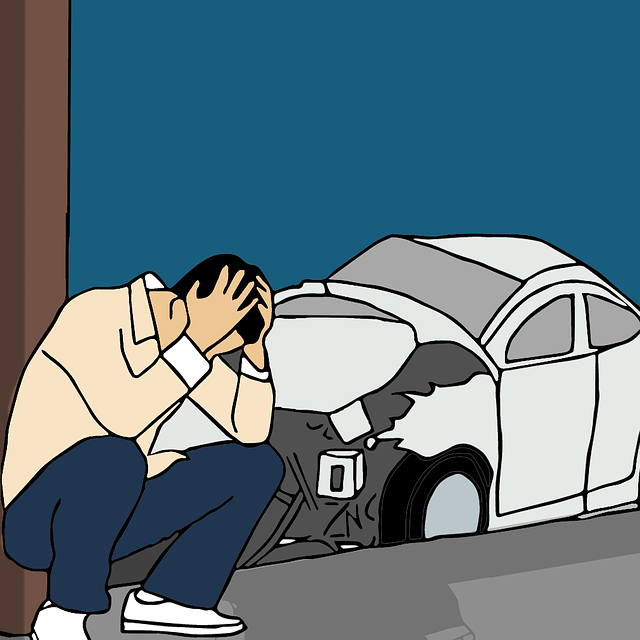Wrongful death damages include essential funeral costs, such as mortuary services, caskets, burial plots, and keepsakes, which alleviate families' financial burden during a difficult time. These expenses, encompassing various aspects of mourning rituals, are crucial in medical malpractice cases, ensuring loved ones receive fair compensation for their loss. Estate managers handle these costs transparently, and legal procedures involve courts assessing economic contributions, pain, and suffering to determine appropriate wrongful death damages, aiming to provide closure and support for grieving families.
Understanding funeral costs within wrongful death damages is essential for families navigating a difficult time. This comprehensive guide delves into the significance of these expenses and why they are included in settlements. We break down the various components of funeral bills, offering clarity on what constitutes fair compensation. Additionally, we explore the legal process, explaining how courts determine reasonable funeral costs in wrongful death cases, ensuring affected families receive adequate support during their time of loss.
- What Are Funeral Costs and Why Are They Included in Wrongful Death Damages?
- Components of Funeral Expenses: A Detailed Breakdown
- Navigating the Legal Process: How Courts Determine Fair Compensation for Funeral Costs in Wrongful Death Cases
What Are Funeral Costs and Why Are They Included in Wrongful Death Damages?

Funeral costs refer to the expenses associated with arranging and conducting a funeral or burial service for a deceased individual. This includes various elements such as mortuary services, caskets, burial plots, headstones, flowers, and often, memorial keepsakes. When discussing wrongful death damages, these costs are considered essential expenses that victims’ families may incur following an unexpected loss.
Including funeral costs in wrongful death damages is crucial as it acknowledges the financial burden and emotional distress experienced by families during this difficult time. In cases involving medical malpractice or other forms of negligence leading to a death, the affected family members might already be facing significant challenges. Therefore, compensating them for reasonable funeral expenses ensures that they receive fair injury compensation and can focus on healing rather than financial strain. This aspect is particularly important when considering partnerships disputes or complex legal matters where the victim’s final send-off should not become a source of additional stress or financial worry for their loved ones.
Components of Funeral Expenses: A Detailed Breakdown

When discussing funeral costs within the context of wrongful death damages, it’s crucial to understand the multifaceted nature of these expenses. Funeral arrangements encompass a wide range of services and products, each with its own price point. This includes everything from the mortician’s services and embalming to the cost of caskets, burial plots, and memorial services. Additionally, transportation fees for the deceased’s remains, as well as any necessary travel arrangements for family members attending the funeral, are also considered legitimate expenses.
Delving deeper into the breakdown, other components may include flowers and mourning garments, religious rites or ceremonies, and even post-funeral care packages that provide comfort and support to grieving families. In cases involving real estate litigation or auto accident injuries where wrongful death damages are awarded, these costs can significantly impact financial settlements. It’s the fiduciary duty of those managing the estate to ensure all funeral expenses are met with transparency and fairness, reflecting the dignity and respect due to the deceased and their loved ones.
Navigating the Legal Process: How Courts Determine Fair Compensation for Funeral Costs in Wrongful Death Cases

Navigating the legal process in wrongful death damages is a complex task, but courts have established guidelines to ensure fair compensation for funeral costs. When a loved one passes away due to someone else’s negligence or intentional actions, the surviving family often faces significant financial burdens, including the expense of funeral arrangements. In these cases, the court plays a crucial role in determining an appropriate award for these final respects.
Judges and juries consider various factors when assessing wrongful death damages, such as the deceased’s economic contributions to the family, their pain and suffering before passing, and the loss of companionship. Regarding funeral costs, the court will examine the typical expenses associated with a funeral service in the local area, ensuring these are covered within the award. This process involves careful navigation through legal procedures, where evidence is presented, expert witnesses may be called, and both parties have the chance to argue their case. Ultimately, the goal is to provide closure and support for grieving families while holding accountable those responsible for the wrongful death.
Understanding funeral costs within wrongful death damages is essential for navigating legal compensation. By decomposing these expenses into manageable components and adhering to fair legal processes, individuals can secure appropriate reimbursement for final rites. This ensures that families are supported during an emotional time, allowing them to focus on healing rather than financial burden. In terms of wrongful death damages, recognizing the role of funeral costs in court proceedings is a vital step towards justice and closure.






